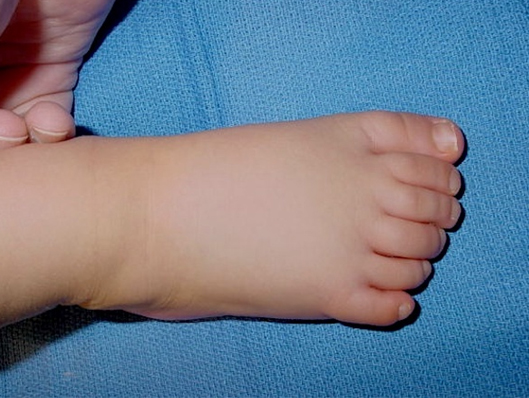
Polydactyly is a congenital condition characterized by the presence of more than the usual number of fingers or toes on the hands or feet. In other words, individuals with polydactyly have extra digits beyond the typical five fingers on each hand or five toes on each foot. This condition can affect one or both hands and/or feet.
Polydactyly can manifest in various forms, ranging from a small, non-functional extra digit to a fully formed and functional digit. The extra digit may be located on the side of the hand or foot, adjacent to the other digits, or it may be rudimentary and not well-formed. The condition can occur on its own (isolated polydactyly) or may be associated with other congenital anomalies or genetic syndromes.
The cause of polydactyly is often genetic, and it can be inherited in an autosomal dominant manner, meaning that a child has a 50% chance of inheriting the condition if one parent carries the gene for polydactyly. However, it can also occur sporadically without a clear family history.
Treatment for polydactyly depends on the severity and functional impact of the extra digits. In some cases, surgical intervention may be considered to remove or correct the extra digit, especially if it hinders normal hand or foot function. The specific approach to treatment is determined by factors such as the location, size, and functionality of the extra digits.
It’s important for individuals with polydactyly to consult with healthcare professionals, such as pediatricians or orthopedic specialists, to assess the condition and determine the most appropriate course of action for their specific situation.
Plastic Surgen , Dr. Sandeep Kansal is a consultant Plastic-cosmetic Surgeon in Meerut. He is currently practicing at , Kailashi Superspeciality , Lokpriya And Nuteema Hospital in Meerut.
Copyright © 2023 Dr Sandeepkansal. All Rights Reserved.